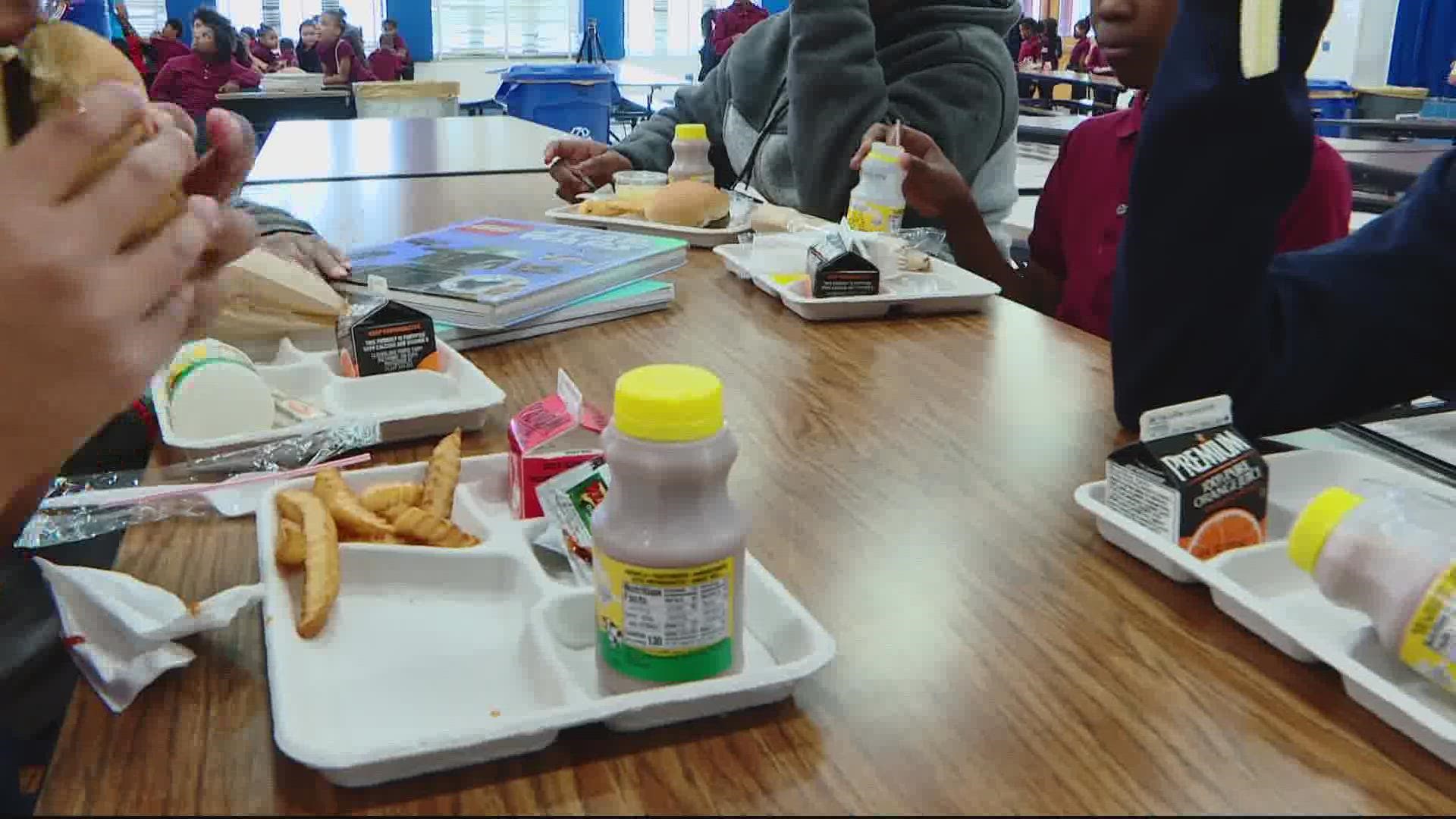PRINCE WILLIAM COUNTY, Va. — As public school students head back to class, they're facing another big change this year: lunch isn't free for everyone anymore.
When the pandemic hit, Congress authorized the U.S. Department of Agriculture to waive eligibility requirements for free lunches, allowing any student to eat for free.
Two years later, legislators have declined to renew the program, meaning families will have to meet income- and household-size-based requirements to qualify for free or reduced lunches.
“That need is is not lowering. It's only increasing," Elizabeth Ford said.
She founded BetterALife in Loudoun County in 2016 to cover overdue school lunch balances and give meals to families in need.
“I was a child of hunger. So I grew up going to school not knowing if I ever had money for food," Ford said. "So it's just something that's heavy on my heart for these children to have to try to study and try to focus and smell that food at the same time. That's extremely difficult on them."
With the switch back to income-based eligibility, she and school officials fear more kids will go hungry.
“The fact that gas costs double and milk costs double and all of our costs are rising and rising, that does not impact the eligibility for this program," said Adam Russo, Prince William County Public Schools (PWCPS) Director of Food and Nutrition.
He said last year, they served about 1.5 million more meals than they would have annually.
“You're talking 15 to 20 more meals per student for the whole year, and that's a big number, right? That's more than more than a ninth of the school days then covered for meals for our kids," Russo said.
He said they're working to take advantage of every program they can, including the USDA's Community Eligibility Provision (CEP), which allows schools in low-income areas to give all their kids in that particular school free lunches, regardless of the individual student's eligibility.
Russo said PWCPS has 37 schools that qualify for the CEP.
Previously, Montgomery County Public Schools (MCPS) said they haven't had any schools that qualify for a CEP, but they were able to offer universal free meals at 19 schools. Moving forward, their director of Food and Nutrition Services, Barbara Harral, said that the Maryland State Department of Education will cover all copays for those meals.
Harral said MCPS has also applied for Maryland Meals for Achievement, which is a free breakfast in the classroom program that the state funds. She said they have about 96 schools that are eligible for that.
“We know that a number of our families in Montgomery County to exist to qualify for free or reduced, they would be at 185% of the poverty rate in Montgomery County that is in such disparity with what it really costs to live in Montgomery County," she said. "So we know we have a huge pocket of students that are affected by this.”
Harral said to help supplement any gaps, MCPS also volunteered to be part of a Medicaid match policy, which is a pilot program that USDA is doing. They'll use Medicaid and other social programs like SNAP and TANF to identify students who qualify for free and reduced lunches without them having to apply.
She said that program has allowed for them to add 24,000 students to their free and reduced lunch program.
Multiple administrators have said more students got meals at school while they were free than they did when there were eligibility requirements.
A spokesperson for Arlington Public Schools said that they served 19% more lunches and 28% more breakfasts while meals were free to all students.
They said under the CEP, five of their schools will continue to offer free meals for all.
A release from Fairfax County Public Schools says 34 of their schools qualify for CEP and will offer universal free lunches.
Russo is calling on legislators to do more.
“Nobody ever asked for anybody's income to get on the school bus or for a textbook or to do gym class, but for years and years, our programs have always had stigmas attached to them because of the income-based eligibility," he said. "And I think that we all know that there's a level of dignity to just serving meals to everybody… We are talking about the future.”
Russo said they're working with Virginia legislators, particularly Danica Roem on some bills that would make meals free in Virginia.
"To kind of trailblaze that way and you know, really do what's right for our families," he said.
Another important change schools are reminding families is that they have to apply again to receive free and reduced lunches.
To access the application for the following districts, click on the links:

